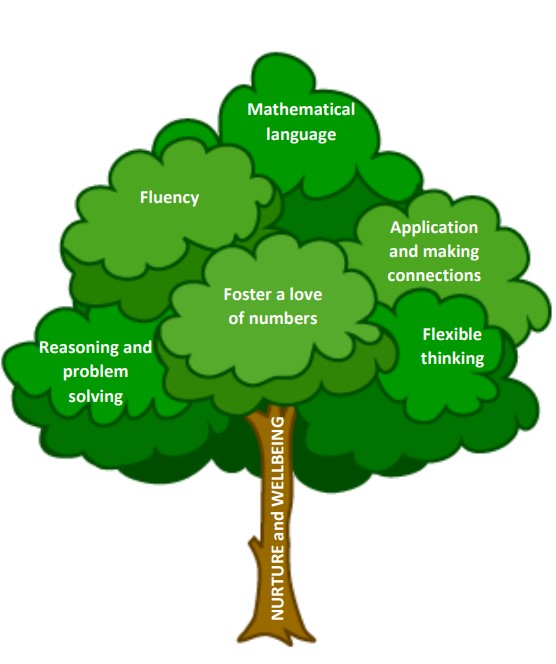Intent
At Chesterton, our number rich environment enables children to progress stage by stage at a pace that is appropriate to them, allowing for deeper conceptual understanding and fluency. Our classrooms are ‘mistake friendly’ where children see mistakes as learning tools. Lessons incorporate sustained levels of challenge through varied and high quality activities with a focus on fluency, reasoning and problem solving.
- Mathematical Language
- Fluency
- Foster a Love of numbers
- Reasoning and Problem Solving
- Application and Making Connections
- Flexible Thinking
A Chesterton Mathematician is:
- Enthusiastic about their learning and eager to progress.
- Fluent in a range of number facts and procedures.
- Confident in collaborating in maths lessons.
- Able to use mathematical language.
- Able to apply skills and knowledge across the curriculum and in every-day life.
Implementation
Our staff address the National Curriculum coverage through the use of White Rose Planning for each year group, using material from NCETM and NRich to further develop thinking. This has been adopted by us to give structured support to non-specialists.
White Rose offers:
- Clear progression through units, highlighting vocabulary;
- CPA approach with demonstrations of pictorial methods to embed understanding;
- Bar modelling and Barvember;
- Premium resources (Flashback 4 – recaps learning from previous lessons and topics so continually embedding knowledge and understanding).
New learning is logically sequenced, and children are actively encouraged to make links to prior learning of knowledge, concepts and procedures. Positive links are also made to the wider curriculum where children can apply their mathematics in context.
Interventions/Support:
- Mathletics (Year 6);
- PiXL groups;
- TT Rockstars (multiplication and division);
- My Mastery ‘Ready to Progress’.
Our Impact:
Assessment of learning takes place both during and following lessons to plan effectively for next steps. Timely formal assessment is also carried out throughout the year, including question level analysis to identify progress and the need for any revisiting for individuals, groups or a whole class. The impact of the mathematics curriculum looks at both the attainment and progress of each child with the aim they will achieve the ‘Expected’ or ‘Higher’ national standard and will make positive progress points from previous assessments.
What our children say about Mathematics at Chesterton
“I take pride in presenting my work neatly and I enjoy answering reasoning questions.”
“Maths is fun and it helps us to understand other subjects like Science and Geography.”
“I enjoy learning things that my parents don't know, like Roman Numerals!”
“I like using Tens and Ones!”
